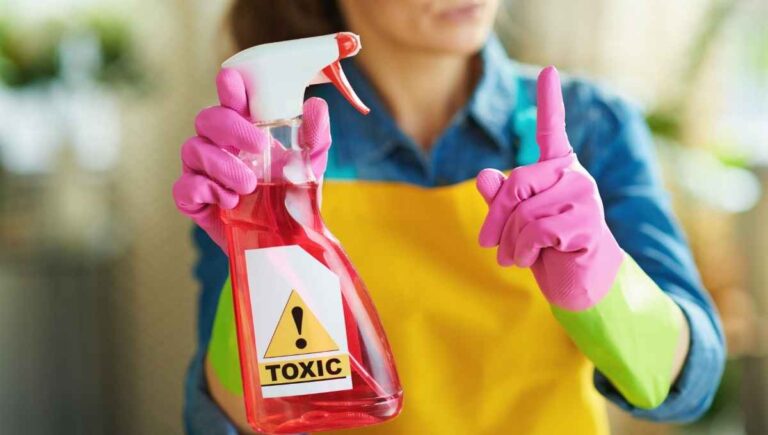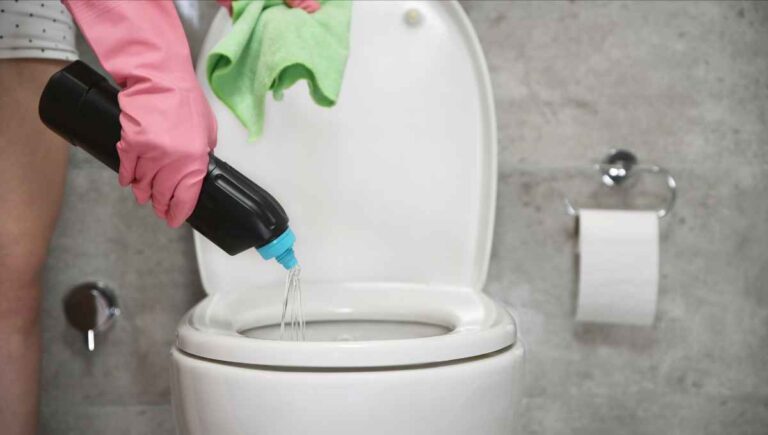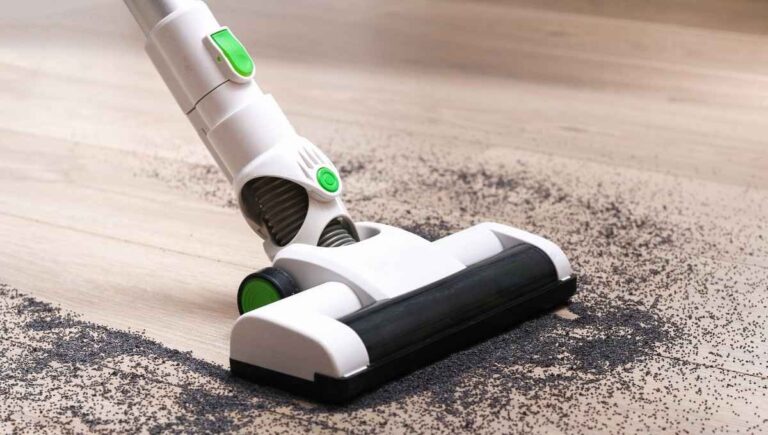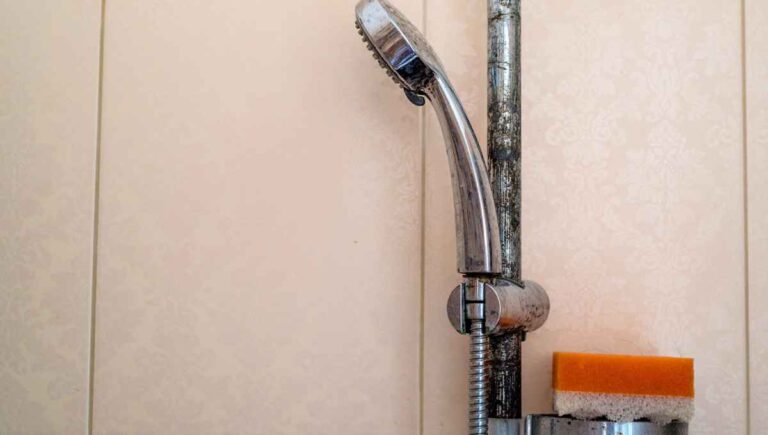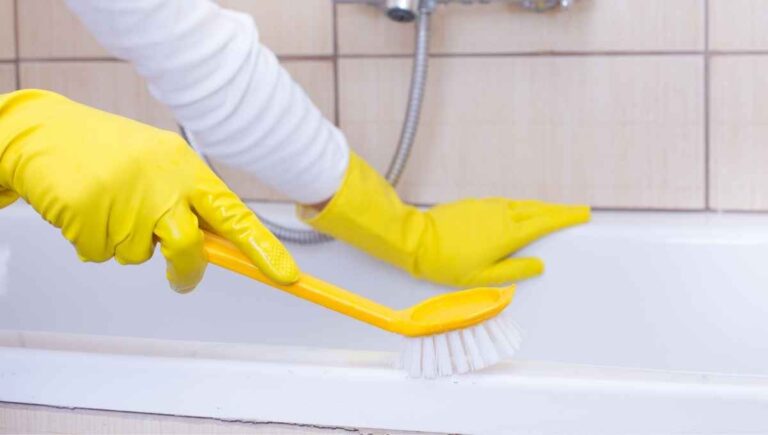Can a Vacuum Cleaner Electrocute You? (Do This to Stay Safe)
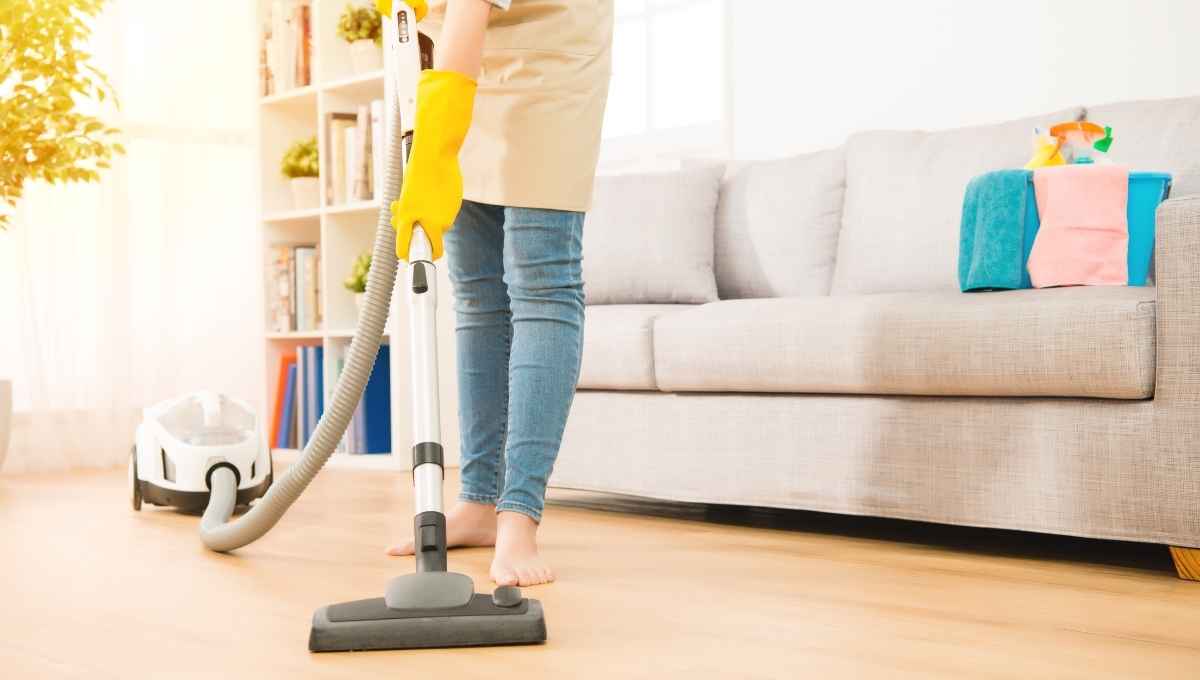
The thought of a vacuum cleaner electrocuting you, while in the middle of vacuuming, can certainly catch you off guard! But, you are definitely not the first person to wonder about this. So, can a vacuum cleaner electrocute you?
Vacuum cleaners can electrocute you if they are being used incorrectly and not for their intended purposes. Using a regular vacuum cleaner on wet surfaces is the most common scenario where electrocution can happen. Vacuums can also discharge a static shock in low humidity environments.
Vacuuming up a wet mess might sound like a good solution but it is not, you could end up damaging your vacuum or even being electrocuted! In this article, we will discuss why that happens and how you can stay safe.
This post contains affiliate links. This means Household Blogger may earn a commission should you make a purchase using any of our links. Please refer to our full affiliate disclosure policy for full details.
Here’s a Quick Pro Tip!
Although it doesn’t happen often, a vacuum cleaner could definitely electrocute or at least just shock you. If you try to clean up something wet with a regular vacuum – or try to vacuum with an exposed wire – you are more likely to get shocked.
Instead, you should use a wet/dry vacuum for cleaning up wet messes.
Here are some of our recommendations for wet-dry vacuum cleaners:
1. Shop-Vac – This brand is known as one of the best wet/dry vacuum cleaners.
2. Vacmaster Professional – Can be used as a blower too!
A Vacuum Can Electrocute You!
Even though it does not happen often, it is entirely possible for your vacuum cleaner to give you a static shock or even electrocute you. Let’s discuss why that happens.
Can You Get Electrocuted From a Vacuum?
You can get electrocuted from a vacuum if you try to vacuum up liquid with a vacuum that is not designed to handle liquid. However, vacuums are generally safe if you use them properly.
Regular vacuum cleaners are not designed to suction up liquids, even a high-end Dyson was not designed to clean wet messes.
There are vacuum cleaners that are specifically designed to clean wet messes as well, like the Shop-Vac vacuums.
Why Am I Getting Static Shocks From My Vacuum?
Static shocks are a common occurrence while vacuuming and one of the most common causes is low humidity. Your hose creates friction when it rubs over surfaces (like carpets) and when you touch the hose that static electricity shocks you.
You can add some moisture to the room by buying an air humidifier. This will help circulate more moisture in your house and it will make it less likely that you will be shocked by static electricity.
Why Is My Shark Vacuum Shocking Me?
If you do not have a wet/dry Shark vacuum and you try to clean a wet mess with your regular vacuum cleaner, it could shock you. Regular shark vacuums are not designed or manufactured to be able to clean wet messes.
Another reason that your shark vacuum might be shocking you, is because of the friction between the hose and the floor/carpet while you are vacuuming.
If your house has low humidity this could lead to the build-up of static electricity, which could shock you.
Do Vacuum Cleaners Create Static Electricity?
Vacuum cleaners create static electricity from friction building up in a low humidity environment. As your vacuum is used over time the static electricity will build up and if you touch the hose of the vacuum you would feel a static shock.
Another less common situation where your vacuum could electrocute you is if your wire is exposed or damaged.
If you ever touch these wires while it is plugged into an outlet it will electrocute you. You should regularly check your vacuum wire for damage or exposed copper wires.
Can a Vacuum Cleaner Hurt You?
A vacuum cleaner can hurt you if it is not used correctly, such as vacuuming liquids with a vacuum that is not wet/dry. Generally, though, vacuum cleaners are very safe to use if used as intended.
Safety tips when using a vacuum cleaner:
- Do not vacuum a wet surface – Unless you specifically have a wet/dry vacuum, like a Shop-Vac, do not try to vacuum any wet surfaces with your household vacuum.
- Always check the cord for exposed wires – If you touch an exposed wire while it is connected to electricity, you will be electrocuted.
- Look out for kinks in the cord – Tripping over the cord of a vacuum machine is probably the most common accident that happens with vacuum cleaners, you do not want your children or grandparents tripping over a cord.
You might also enjoy our post on If You Can Vacuum Ashes From a Fireplace
You Shouldn’t Try to Vacuum Wet Messes Without the Proper Vacuum Cleaner.
Your regular Dyson, Shark, or any regular vacuum is not designed to clean wet messes. If you want to clean a wet mess you should make sure to purchase/hire a wet-dry vacuum, like a Shop-Vac.
Is It Okay to Vacuum Something That Is Wet?
You should not try to vacuum something wet with a normal household vacuum. Your normal vacuum does not have a filter that can handle liquids, you could damage the filter in your vacuum.
If you have an emergency and you need to vacuum a wet mess with your regular vacuum, you should remove the filter from the vacuum cleaner.
This will ensure that your filter does not get damaged or clogged.
Can You Vacuum up Liquids?
Technically, yes you can vacuum up liquids with the correct vacuum cleaner. We recommend using a wet/dry vacuum cleaner, like a Shop-Vac, which is designed to suction up liquids.
Regular vacuum cleaners are not designed to suction up liquids and if you try to vacuum liquids you could seriously damage your machine or even electrocute yourself.
The dust bag of your vacuum would also be very difficult to clean because it was not designed to hold liquids.
Will I Get Shocked if I Vacuum up Liquids?
You definitely could get shocked if you use a regular vacuum to try and clean up wet messes. Regular vacuum cleaners are not designed or manufactured to clean up wet messes. The liquid will damage the filter of the vacuum, which could lead to replacing the whole vacuum!
If you want to vacuum up liquids or wet messes we recommend using a Shop-Vac vacuum or any other wet/dry vacuum.
These vacuums are designed to clean up wet and dry messes and you do not run the risk of being shocked.
Will My Vacuum Get Damaged Vacuuming up Liquids?
The amount of water that you vacuumed up determines the extent of damage to your vacuum cleaner. If you accidentally vacuumed a small puddle, there are certain steps that you can take to make sure that your vacuum is not damaged.
Steps to take when you vacuum up water:
- Stop vacuuming as soon as you realize that you went over water.
- Let your vacuum cleaner dry completely.
- Unclip the bag.
- Remove the filters.
- Make sure that everything is thoroughly dry before replacing.
You might also enjoy our post on If You Can Vacuum a Wet Carpet
Will I Get Shocked if I Vacuum up Something Hard?
Static electricity builds up through friction. Friction is caused by the rubbing between your vacuum and the floor. Rougher surfaces generate more friction, so generally speaking, vacuuming your carpet should generate a lot more friction than your tile floor.
If you vacuum something hard, like a tile floor or hardwood, you are less likely to shock due to less static electricity building up.
However, you are more likely to be shocked when you are vacuuming rough surfaces like a carpet or even the couch.
Is It Okay to Vacuum With the Wire Exposed or Damaged?
You should never try to vacuum with the wire exposed or damaged, if you touch the wire while connected to a power outlet you could be electrocuted. You could buy electrical tape and cover the exposed wire to prevent this accident from happening.
If you see that a patch of cord has the wire exposed, you should immediately purchase electrical tape and wrap it around the cord until no wires are exposed anymore.
This will prevent anyone from being shocked or electrocuted.
Can My Electrical System Be Causing My Vacuum to Shock Me?
If wiring is done on your house and the electrician did not ground your outlets, you could get shocked every time you try to vacuum because the live electricity has nowhere else to go but through your body.
If you have a newer house then this shouldn’t be a problem for you because all newer homes are required to be grounded, but older homes are not.
It is a lot more common to be shocked while using appliances in older homes.
Am I More Likely to Be Electrocuted by My Vacuum if I Have an Old House?
If your house is older, you are definitely more likely to be shocked or electrocuted by your vacuum cleaner. This is because older homes were not required to ground their outlets and even to this day are not required to replace these outlets.
If you find yourself being shocked by your vacuum regularly and you have an old house, you should hire a technician to redo the wiring on your house and make sure that your outlets are grounded.
Preventing Your Vacuum From Shocking You
Now that you know how and why your vacuum is shocking you, your next thought might be how to prevent this from happening, we’ve got you covered!
How Can I Prevent My Vacuum From Shocking Me?
You should use a high-quality anti-static hose, this will prevent a lot of static electricity from shocking you. Vacuum hoses come in two sizes: standard and commercial. The commercial hoses are thicker and less likely to shock you.
An anti-static high-quality hose is essential. You should also add some moisture to the air in the room as low humidity can also cause static electricity to build up more.
You can also buy an anti-static spray for your carpets and other surfaces.
Is There Anything That Will More Likely Shock Me if I Vacuum It?
A carpet is the most likely to shock you when you vacuum it because rough surfaces cause more friction and a carpet is usually the roughest surface that we vacuum in our houses.
You should clean and vacuum your carpet regularly, this will prevent the build-up of pet hair, debris, etc.
Vacuuming regularly will also decrease the likeliness of your vacuum building up static electricity and shocking you.
What Makes a Vacuum Anti-static?
An anti-static hose can help to dispense the static electricity that builds up in the hose of a vacuum. This static electricity builds up with friction (carpet, fine dust, pet hair, etc.) and it can eventually shock you.
Anti-static hoses are available from Amazon or your local hardware shop. They are durable, lightweight, and flexible.
They come in a variety of lengths and diameters to be able to fit on most regular vacuum cleaners.
Related Questions
Is It Safe to Use a Vacuum on Yourself?
It is safe to use a vacuum cleaner to clean your clothes, but not directly on your skin. There are pore vacuums, which are specifically designed to suction pores on your face, but regular household vacuums should not be used directly on your skin.
Some people try to vacuum themselves with regular household vacuum cleaners and that usually leads to damage to your skin, bruising, and tearing.
A vacuum cleaner has very powerful suction, and it is not designed to be used on yourself.
Can a Vacuum Cleaner Explode?
Most standard vacuum cleaners can explode and are vulnerable to ignition. You should not try to vacuum combustible dust, this could lead to your vacuum cleaner exploding!
You already know that your vacuum hose generates static electricity from the friction of dust, so if your hose is ungrounded and you vacuum combustible dust it will ignite the static electricity and explode or catch fire.
What Should You Not Vacuum?
The most important thing that you should never vacuum is broken glass. It can damage your hose, filter, dust bag, motor, or just completely damage your whole vacuum. We have compiled a list of additional things which you should never vacuum.
5 things you should never vacuum:
- Broken glass
- Wet food/messes (unless you have a wet/dry vacuum)
- Fireplace ashes
- Coins & paper clips
- Fine dust
Final thoughts
Your vacuum can electrocute you if you try to vacuum wet messes with a regular vacuum machine or if you try to use a vacuum with an exposed wire.
You should use a shop-vac to clean up wet messes and never use a vacuum with a damaged cord.






